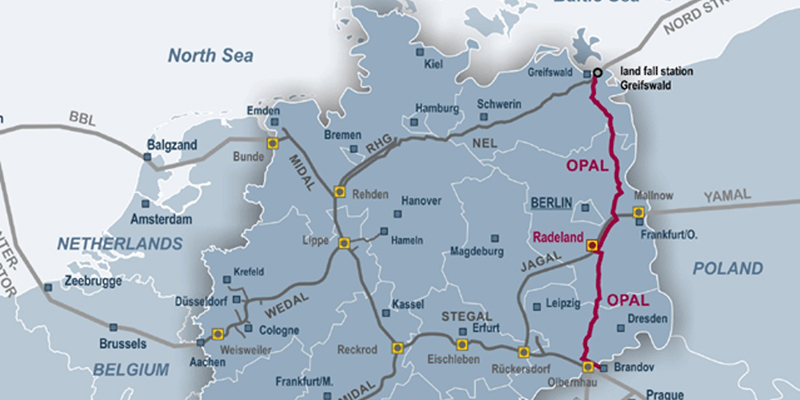Background
- On 17 December 2019, it was announced that the Republic of Germany (Germany) was appealing an earlier General Court decision involving the OPAL pipeline. On 27 January 2020, the Court of Justice of the European Union (CJEU) published Germany’s grounds of appeal.
- The appeal relates to a judgment of the General Court handed down on 10 September 2019. The judgment was pursuant to an application by Poland under article 263 of the Treaty on the Functioning of the European Union (TFEU). The EU’s General Court had annulled an earlier decision of the European Commission (EC) relating to the OPAL pipeline. The OPAL pipeline, one of the onshore extensions of the Nord Steam pipeline, carries Russian gas from the Baltic Sea into the German grid.
- The EC had previously enabled Gazprom to utilise more than 50 per cent of the OPAL pipeline’s capacity, in effect providing Gazprom with a monopoly despite the Third Energy Package regulations, which limit ownership of both infrastructure and transmission by the same entity and are aimed at enhancing fair competition between the EU and third-country companies. The Nord Stream pipeline is controversial as it facilitates Russia’s plans to curb transit through Ukraine and Poland (which could in turn affect their economies) and increases the EU’s dependence on major energy suppliers such as Gazprom.

Decision
- Poland relied on six arguments in law in support of its application:
- The infringement of article 36(1)(a) of Directive 2009/73 in conjunction with article 194(1)(b) TFEU ensuring the security of supply, along with the principle of solidarity;
- The lack of competence of the EC and the infringement of article 36(1) of Directive 2009/73;
- The infringement of article 36(1)(b) of Directive 2009/73 (which sets out an exemption from sections of the Directive for high-risk investments);
- The infringement of article 36(1)(a) and (e) of Directive 2009/73 (which sets out an exemption from sections of the Directive if the investment enhances competition and satisfies other criteria);
- The violation of international conventions to which the EU is a party; and
- The breach of the principle of legal certainty.
- Only the first argument was addressed, as the General Court concluded that based on this, the EC’s decision should be annulled. If Germany’s appeal was to succeed, the court would need to consider Poland’s other arguments. Poland principally argued that granting a new derogation relating to the OPAL pipeline threatened the security of the gas supply in Central Europe – in particular, gas transit via other pipelines that run through Poland.
